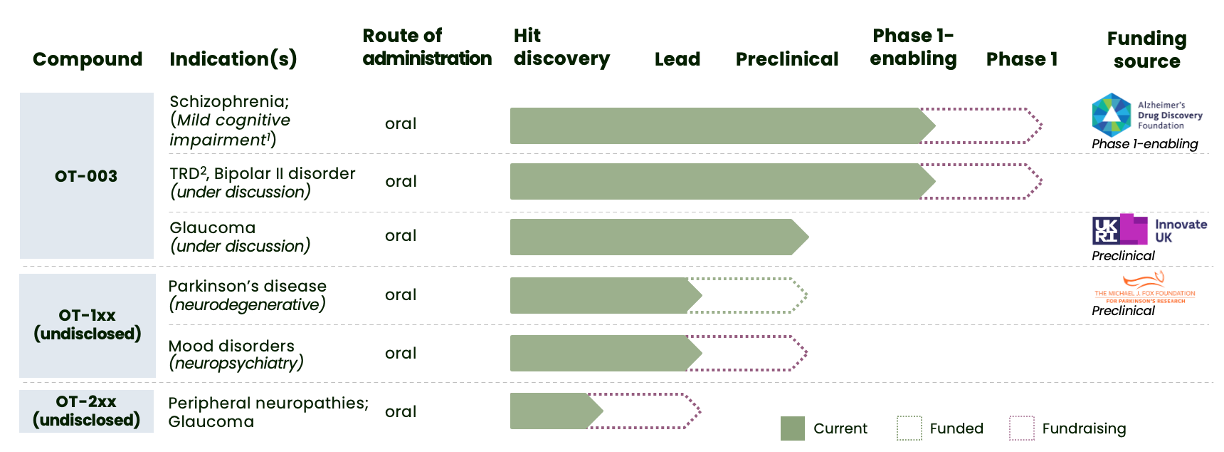
Our lead compound OT-003
Our lead asset OT-003, a proprietary small molecule activating the TrkB receptor, shows compelling results across a range of cellular and in vivo models for CNS diseases. We have received our Clinical Trial Authorization (CTA) from the UK Medicines and Healthcare products Regulatory Agency (MHRA) for the Phase 1 clinical trial of OT-003. In addition, we are developing a pipeline of next-generation TrkB activators to treat a wide range of neurological and mental health disorders.



